History of our collaboration with the Murayama Token Workshop (Jisei brand)
Murayama Token is one of the oldest Iaito workshops and certainly the most prolific nowadays. It is one of the workshops at the origin of the Iaito, a small family business, the kind of business we always wanted to support. At least, until recently.
Here comes the story of our collaboration with Murayama Token, from beginning to end.
The Beginning
I first heard about the Murayama Token workshop very early in my days in the industry, soon after meeting the Minosaka workshop craftsmen.
At the time, they had the reputation of making excellent custom-made Iaito, but to have very uncertain production times.
Production time has always been an issue for Seido, as we get paid at the time of the order, making customers wait 4 months and then announce 2 more months' delay was something I wanted to avoid, and therefore, I did not pursue and was happy with Minosaka's reliability.
Then I heard about them again a couple of years later, when one of the master craftsman's friends, Mr. Isobe, created the Jisei brand, a brand that aimed to be Murayama's storefront for B2C sales.
Mr. Isobe was a particularly rigid man, sometimes even a bit rude, but we shared our view of the industry, and he was extremely precise with everything he was doing, including production times. With him in the middle, dealing with Murayama became an option, so we asked, and we started offering Murayama's Iaito under the name Jisei.
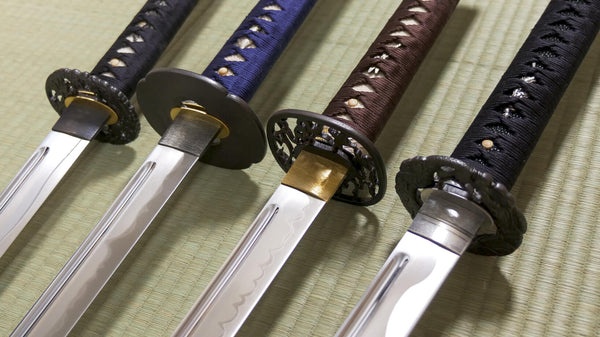
Jisei, the best Japanese B2C Iaito brand at the time
One must first understand that Japan's internet technology is at least a decade late in comparison to the West, online stores included. Selling full custom Iaito is not a simple thing, as there is - still today - no ready-to-use e-commerce system allowing for simple product customization.
Mr. Isobe's first strength was his ability to code, to develop a website that would be entirely dedicated to custom Iaito sales, allowing not only for extensive customization but also preventing the selection of incompatible options, with a level of details and explanation that had not been seen before.
At the time, Seido was still mainly selling on the now extinct BudoExport.com website, and by comparison, Jisei's website was significantly better in the customization functionality. To the point It actually inspired us when we developed SeidoShop.com.
Anyway, the presence of Mr. Isobe changed many things. He published very detailed product descriptions, which was very rare in an industry where it was asked customers to trust the seller and not ask too many questions.
Here, I must digress, as I strongly believe that the ancient custom of requesting customers to blindly trust craftsmen and sellers has been largely abused. Fake made in Japan, fake certification marks, made in North Korea Shinai, equipment that transforms from made in Cambodia to be made in Japan by just adding a lace manually in Japan, such practices are surprisingly very common in Japan nowadays.
Let's get back to Jisei. Mr. Isobe also published excellent blog articles about craftsmen, manufacturing processes, special custom-made productions, and more.
He maintained a reliable and easy-to-understand website. But he also proceeded to take pictures with detailed measurements of all products and contributed to patent registrations to avoid cheap Chinese copies from flooding the Japanese market.
In other words, he really made an old industry enter the 21st century in proper terms and our shared views of the industry issues and how to fix them led to - I want to believe - mutual inspiration.
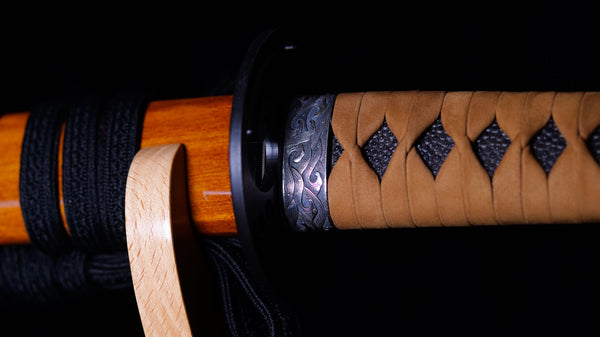
It couldn't work in a very opaque industry
Unfortunately, Mr. Isobe was... well, he has his own /particular way of doing, and it did not please everyone.
Associated with repeated complaints from some of Murayama Token's resellers, this led him to close Jisei and later create his own business, Katanabe (which still exists as far as we know, and he still works with MT amongst others).
Why did other resellers complain? Well, probably because most of them sell their Iaito under their own brand, and seeing the same pieces under a brand that looked directly tied to the workshop... made their business model look disputable.
Jisei also benefited from lower prices due to its proximity to the workshop, and a much more reliable ordering process as Mr. Isobe was able to visit the craftsmen on a daily basis to check that everything was in order.
When Jisei closed, we wanted to do as we always did, sell their Iaito under their workshop name, Murayama Token. Because that's what we do at Seido, total transparency and honesty, recognition of the craftsmen we work with.
But we very quickly received a call from Master Murayama requesting us to remove their name, after - yet again - complaints from other resellers.
That's when I really understood that it was paramount to other resellers that the name was kept secret (and why I'm publishing this article now, exposing the entirety of the situation). We had a good relationship with the workshop, and were always willing to make compromises between what they wanted, and our own ways. The workshop accepted that we carried their brand name Jisei with us to the point we were even invited to start selling in Japan (our custom Iaito ordering system was really good) We had made the promise to Mr. Isobe that we wouldn't compete with him (and on the other hand, he promised he would redirect all English requests to us), but with Jisei gone, this promise no longer made sense.
From that point, we were informally entrusted with the brand name created by Mr. Isobe, and we made a point to stay true to his original commitments: good pictures, clear and detailed explanations, and reliable production times. As we have heard from many customers who also had the experience of buying from other sellers, Seido had the reputation to be the most reliable reseller, on the quality side, information side, and production time side. We hope we have done credit to Mr. Isobe in the way we worked.
And it only gets worse
Then, in June 2022, everything suddenly changed.
Mid-June, Mr. Murayama informed us that they made a (secret) agreement with their main reseller, which resulted in excluding "Seido and some other resellers" (not all ? only Seido ? unclear), which would now have to order through a third-party, Murayama's number one reseller.
For context, Seido was, based on our estimations, very likely Murayama's second customer behind this main reseller. It’s hard to be precise, but Seido was certainly one of the top resellers.
The first odd thing is that Mr. Murayama informed us via email on June 16th that this agreement came into effect on June 1st, several weeks before we were informed.
The second odd thing was that Mr. Murayama seemed to have no idea of what would happen precisely. He said we would probably be deprived of the brand name Jisei, that there would be a significant price increase, and that their catalog would probably change. That's all.
At this point, we already had a clear idea of who did what, why, and what would happen next, so… as requested to do, we contacted them with one main request.
Expecting some kind of unfair move, we strongly stressed to both Murayama and the new third party company that it would not be fair, reasonable, and honest to inform us of the changes at the very last minute and we requested to be informed as soon as possible.
To the end
At this stage, you probably already guessed what happens next.
We received the new catalog and prices applicable from July 1st on June 30th around noon. Giving us basically 5 hours to update all products and prices.
The new catalog concerned only the standard Iaito line up, and no mentions whatsoever were made of full custom and all pieces (Tsuba, Menuki, etc.), so we updated our products as per the received catalog, and kept selling other products normally.
And yet again, on July 8th, Friday, around 8 PM, we received an email informing us that all orders placed for products not in the new catalog (90% of the previous product listing) would not be available any longer.
This came after every single order placed since July 1st was received and approved by the new owner (each mail order had been acknowledged as "order received").
This is how our collaboration with the Murayama workshop ends.
At this point, it is clear to us that both Murayama and his reseller could not be trusted, and with Seido's ethics coming first, it wasn't possible for us to continue supporting them.
We spent the whole night removing all their products from our 3 websites, and the rest of the weekend to identify all non-fulfillable orders, contact customers, and solve any potential issues.
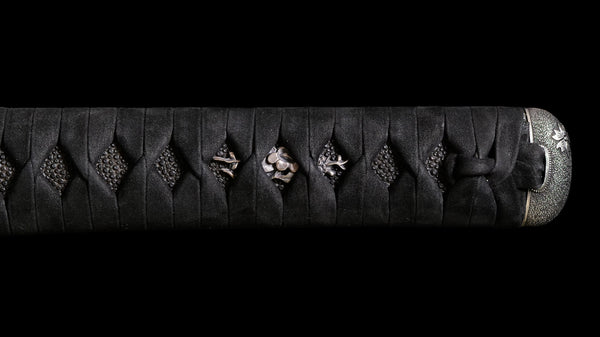
Conclusion
Of course, as said earlier, this did not come as a surprise, as all this is part of a large-scale process in which all craftsmanship is concentrated into the hands of very few companies.
With our “equal partnership” approach, we have no real leverage on this process, and in the end, accepting or refusing this model is the craftsmen’s choice. Seido is the only company run by a bunch of foreigners and Japanese women. One should know that in such a traditional industry, only men over 40 are taken seriously, women in very rare cases, and foreigners… not so much. Of course, on a personal scale, we built excellent relationships with our partner craftsmen, but on a larger scale, the Japanese “tatemae” (the behavior and opinions one displays in public) takes precedence.
As fellow Budoka, we also consider it important that our customers understand that Seido's model is not viable. We chose to run our business with a specific ethic, under ethical principles that directly come from what we have learned practicing Budo, even if it meant that the company had, from the very beginning, a limited life expectancy.
It's always been a David vs Goliath situation : a bunch of foreigners with no money against a century-old network dedicated to the rise of one top power player.
But taking up a challenge, working hard, and seeing where it leads, especially when it is for the greater good, is an extremely interesting and character forging path.
Hence, and although it may sound like it, we have no negative or hard feelings toward this specific situation. It was set to happen sooner or later, and although not as courteously as we would have liked, we are convinced that we had a very positive influence on the industry.
One might just think: "well, they got beaten by a competitor, and they lost, period."
And that would be true.
But if you do believe in the modern "Amazon-like" model, then let's just agree to disagree.
Diversity of opinion is always what makes this world great to live in, and as Budoka and human beings, way beyond our own business considerations, we are not happy with what the world has become. With continuously growing sales, Seido has proven that it is possible to not put "money" as the be all and end all of business practices, that respecting craftsmen, women, foreigners, ethical business practices, and of course, customers, is a financially viable business model.
Now, choosing a model over another is an individual choice, a choice we shall respect.
Seido will continue working with all the remaining independent workshops, as no matter what happens, our only meaningful reason to exist is to support independent craftsmen, not the fast-fashion like mass retail model that - it is our opinion - is not doing any good to this world.
Afterwords and disclaimer
The Japanese law might consider this article borderline. One might guess what company is behind this, and should a judge consider it too easy to guess, this article would fall under Japanese defamation laws.
In Japan defamation has nothing to do with the truth, it is just the fact to undermine the reputation of a person or a business (guess why there are no whistleblowers in Japan!).
That being said, Mr. Murayama has been informed of the publication of this article and confirmed having nothing to say in opposition to the truth.
Therefore, this article will only be taken down by a court order.
Please do not mention any names in the comment sections, they would have to be moderated.
We do not know the nature of the secret agreement defined by Murayama Token as "業務提携" (litt: business partnership), but we know that it only concerns "some" of their resellers (possibly Seido only).
This article aims at giving a full picture of our collaboration with the Jisei brand and gives one of the many stories of how business is done in Japan. Please do not shame, criticize, attack, or cancel any party. Negative criticism won't do any good.
Finally, we would like to express our deepest gratitude to all fellow Budoka supporting us, as well as our saddest apologies for not being able to offer as many great Iaito-related products as before.


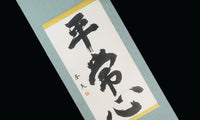

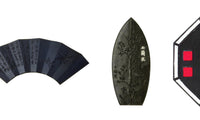

6 commentaires - History of our collaboration with the Murayama Token Workshop (Jisei brand)
En Français, s’il vous plaît!
Really sad to hear this.
Thank you so much for your effort and great service for the customers.
Perhaps this is why they didn’t provide certificates for their Iaitos. Without Iaito certificate, I may not be able to take my (their?) Iaito aboard.
Jordy,business is war, and you are merely channeling that great writer of strategy Arnaud Du Picq “audace, aaudace! Toujours audace”!
I already knew some of this due to currently awaiting my Jisei Iaito and the situation being explained to me privately. I really do hope the workshop keeps their word and delivers the orders before July 1st, including mine. I was really sad to hear how dirty this business can actually be. Fingers crossed.
Budo business is a small world. It is in a difficult situation to keep the tradition and fame while facing challengers from other countries. The new TV drama 競爭の番人 is talking about the idea of proper competition to reform business practice in Japan. Message from the latest episode: a business without competition would die eventually.
Again, I am happy to keep Seido at the top of my shop list. Bon courage!
Hi Jordy, it saddens me to receive this piece of news. Although it is business, there really was no need for the other party to act the way they did; it was unprofessional, petty, and unbecoming of the spirit of Budo.
Instead of predatory acquisitions and nationalistic excuses, the more beneficial way would have been to collaborate. This would both protect and strengthen the industry, and provide a stable platform for the artisans to pursue perfection. The Japanese way is like non other and far superior. Businesses chasing after dollars can only be detrimental and bring disrepute to this unique and powerful way. It is sad to see that foreigners like us care more about Japan.
Having lived and worked in many parts of the world, I can honestly say, I have not come across a business entity that is more humanistic, transparent and mindful as SEIDO. Collaboration with you would have been far more beneficial in every way.